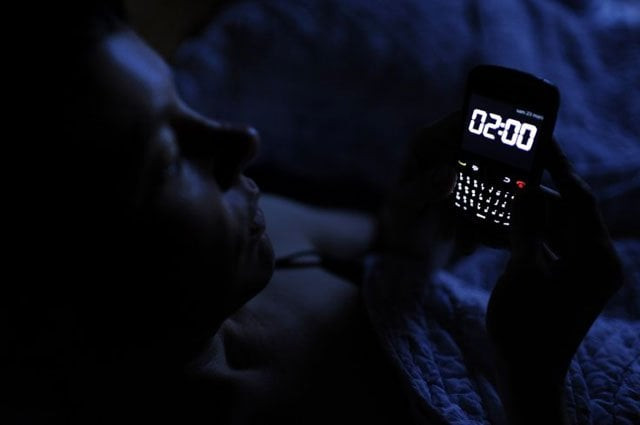Smartphone use in the dark can be linked to temporary blindness
Doctors detailed the cases of the two women, ages 22 and 40, who experienced "transient smartphone blindness"

Two women went temporarily blind from continually checking their phones in the dark, according to doctors who are now alerting others to the unusual phenomenon.
PHOTO: AFP
Doctors detailed the cases of the two women, aged 22 and 40, who experienced "transient smartphone blindness" for months in Thursday's New England Journal of Medicine.
The women complained of recurring episodes of temporary vision loss which lasted for up to 15 minutes. However, after a variety of medical exams, MRI scans and heart tests doctors couldn't find anything wrong with them to explain the problem.
Studying Pakistan’s growing obsession with smartphones
But minutes after walking into an eye specialist's office, the mystery was solved.
"I simply asked them, 'What exactly were you doing when this happened?'" recalled Dr Gordon Plant of Moorfield's Eye Hospital in London.
Both women usually looked at their smartphones using only one eye while resting on their side in bed in the dark — their other eye was covered by the pillow.
"So you have one eye adapted to the light because it's looking at the phone and the other eye is adapted to the dark," he said.
So when these women put their phones down, they couldn't see with the eye with which they were looking at the phone. That's because "it's taking many minutes to catch up to the other eye that's adapted to the dark," Plant said.
Further, according to Plant, temporary blindness is ultimately harmless, and easily avoidable, if people stick to looking at their smartphones with both eyes.
Did you know? Smartphones can make you hyperactive
One of the women was relieved the short-term blindness didn't signal a more serious problem like an imminent stroke. He said the second woman was more skeptical and kept a rigorous months-long diary tracking her fleeting vision loss before she finally believed him. But she couldn't stop checking her phone for messages from bed, he said.
A spokesperson for the American Academy of Ophthalmology, Dr Rahul Khurana called it a fascinating hypothesis but said two cases weren't enough to conclude that one-eyed smartphone use in the dark caused the problem. He also questioned whether many smartphone users would experience the phenomenon.
Admitting that he's a keen smartphone user, Khurana said that he and his wife tried to recreate the scenario on a recent evening, but had difficulty checking their phones with only one eye. "It was very odd," he said.
This article originally appeared on The Guardian



















COMMENTS
Comments are moderated and generally will be posted if they are on-topic and not abusive.
For more information, please see our Comments FAQ